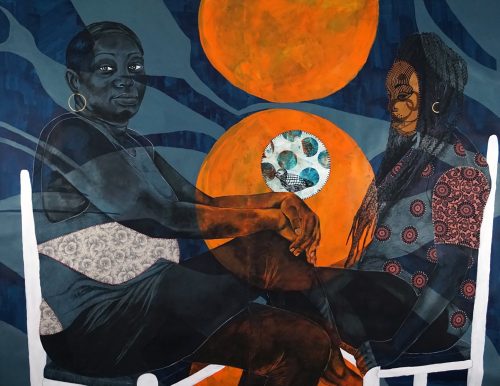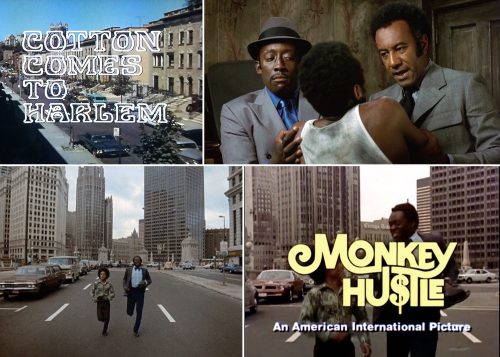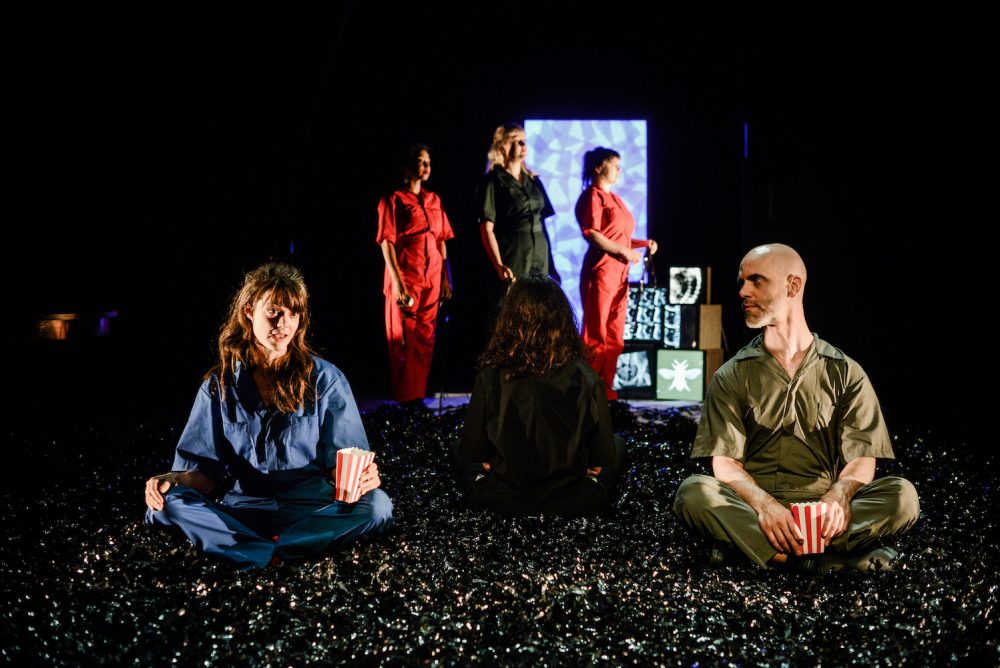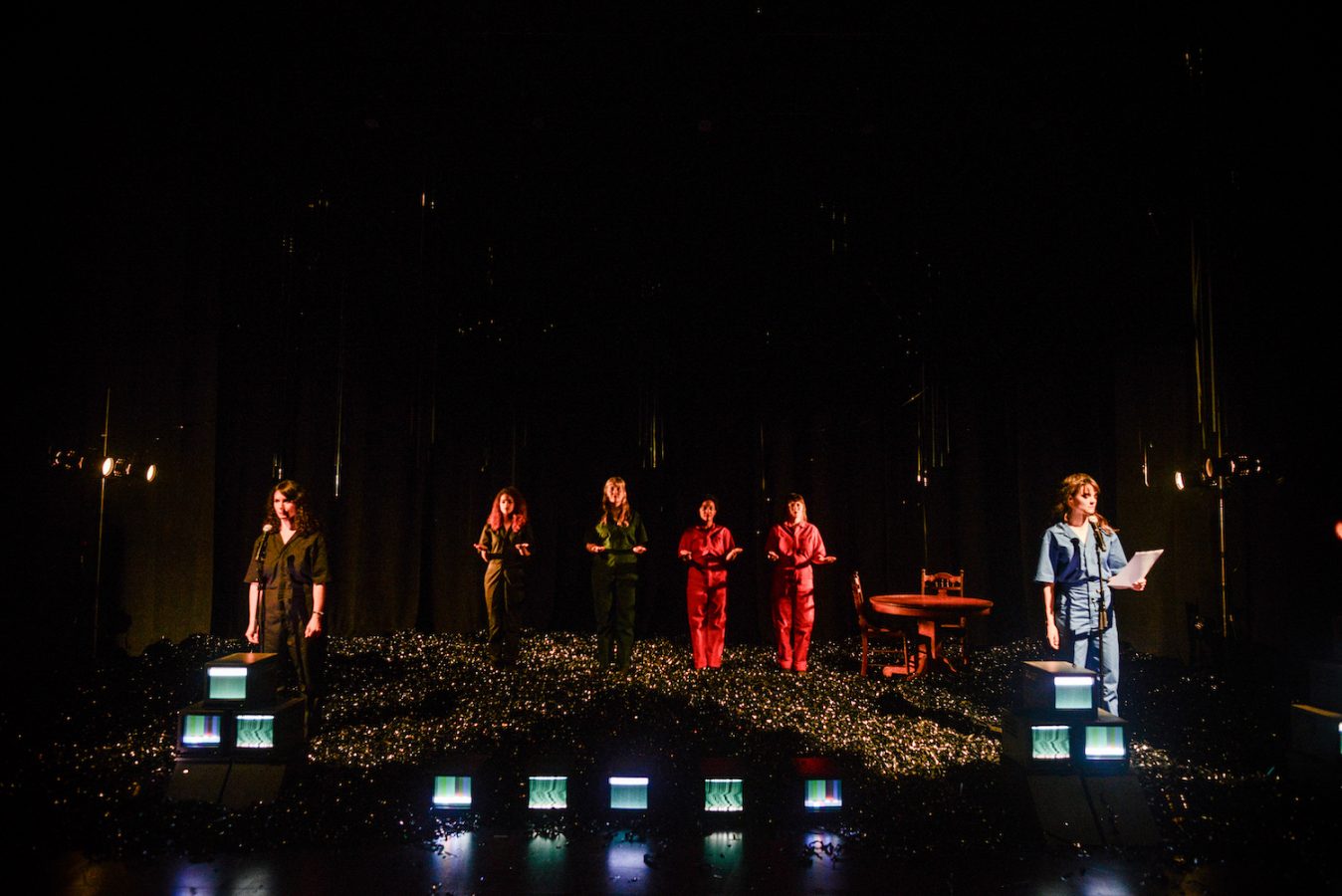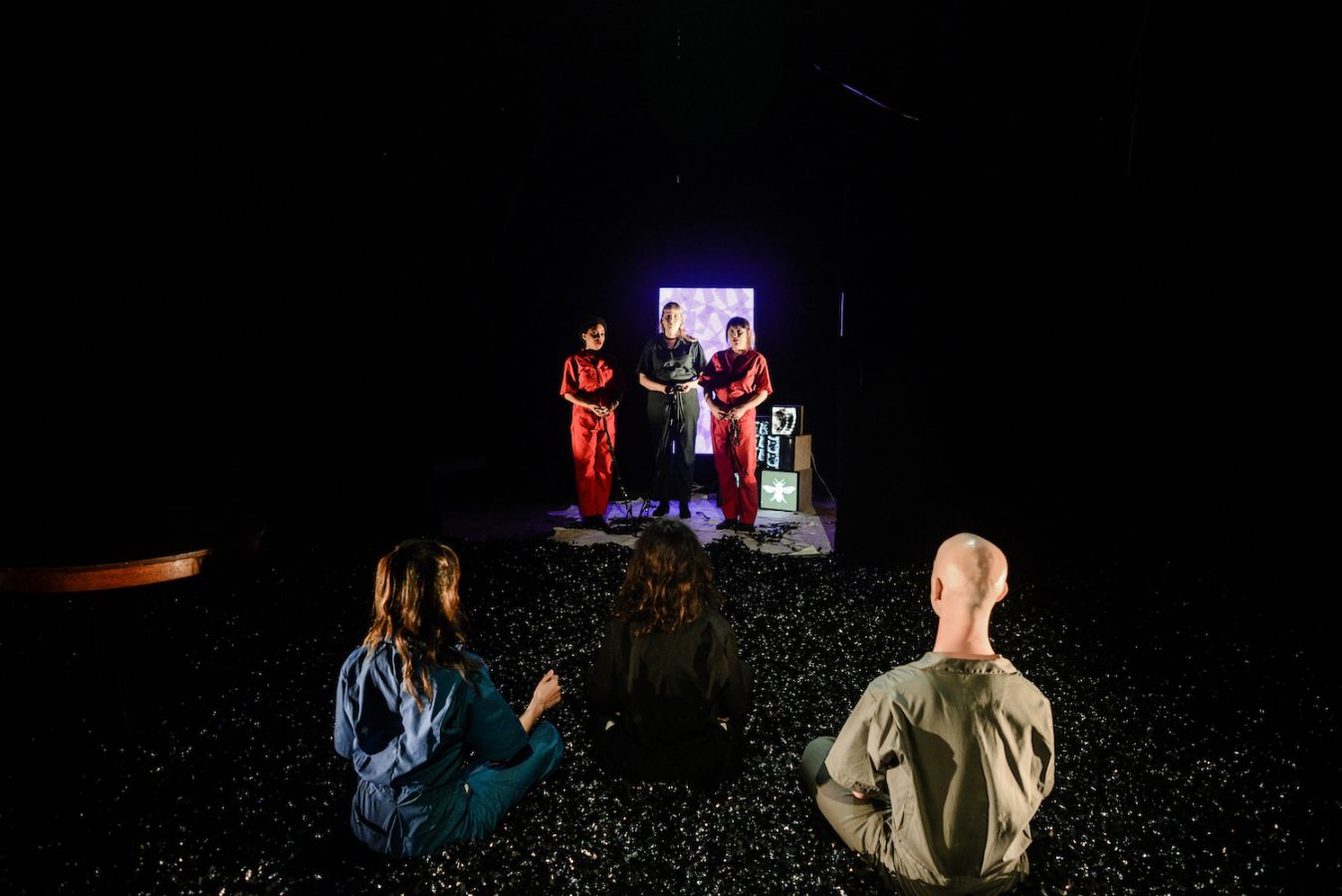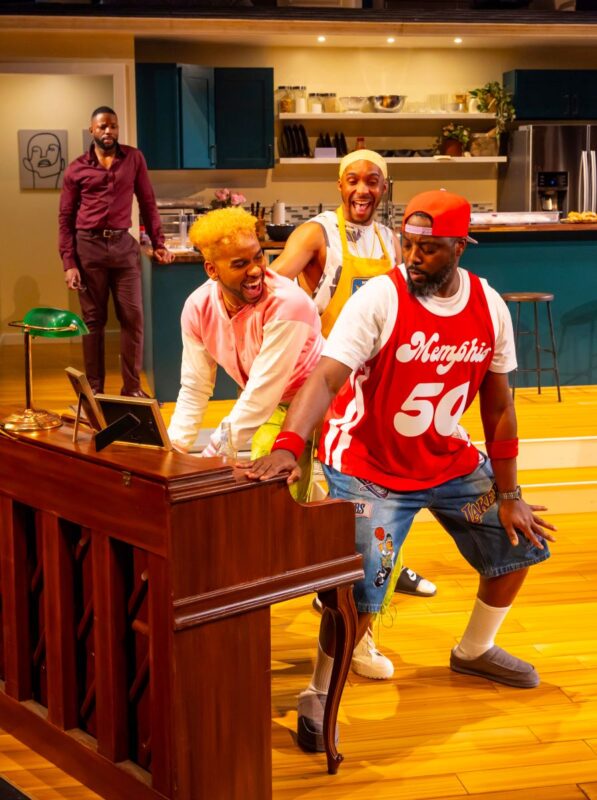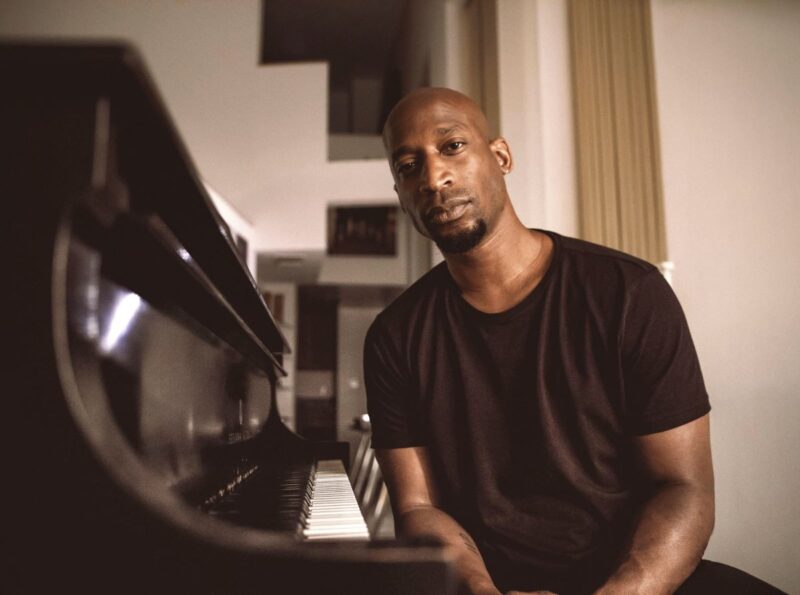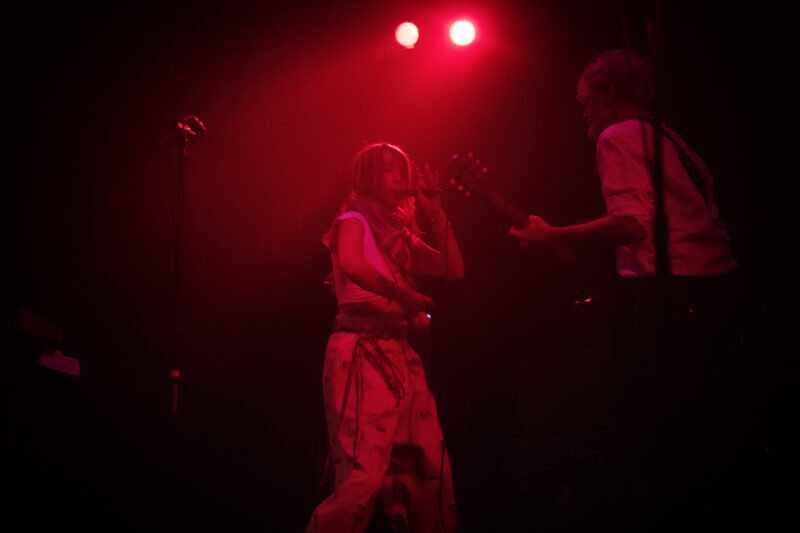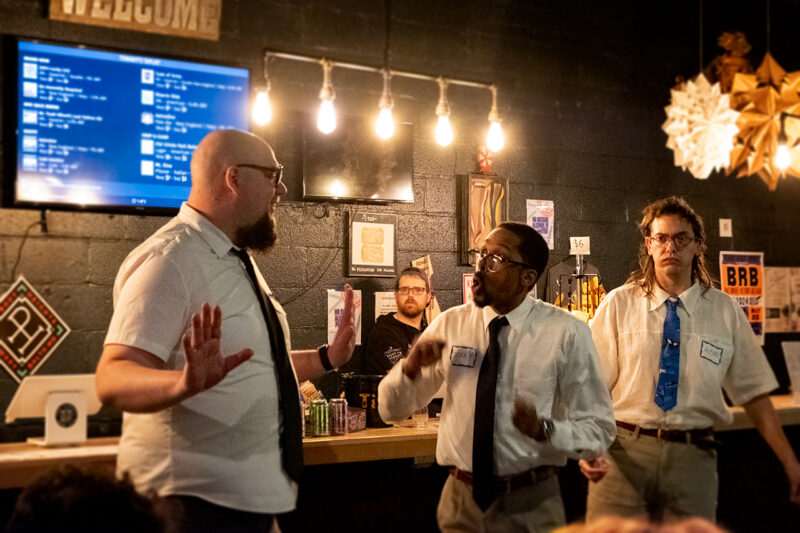I am looking at two lone microphone stands and a floor covered with unspooled yards of VHS tapes, the shining ribbon massed and tangled as forest undergrowth. These are the raw, fertile materials of a production: amorphous, plastic, waiting to be made. I am waiting for The First Thing That Happens, a new opera by the Acme Corporation, at the Voxel theater. The words “talk to you soon” play overhead, on repeat.
Before we begin, let’s address a common stigma of opera: the notion of opera as a genre that we don’t—and might never—understand. Opera as elitist, exclusionary, prohibitive. When I think of contemporary opera, I think of Einstein on the Beach by Baltimore-born composer Phillip Glass and of waiting, with eagerness, as a radiant beam slowly descends from the ceiling to intersect with a locomotive, notes piping over one another in layers too numerous to count. What does it all mean? I am still not sure—and Glass seems content with that. When it comes to contemporary opera, I tend to prepare myself to endure, the genre’s payoffs often requiring patience.
The First Thing That Happens is decidedly more approachable, filled with humor and ready to enjoy. Lola Pierson, who wrote the text and directed the show, frequently had the audience laughing—often at the very confusion that opera (and language) might perpetuate. One of the actors, all of whom are unnamed, asks us to care while another actor quickly follows with calling the whole act bullshit. There is comedy in the juxtaposition, and we’re free to pick sides as we see fit. In the first part of the show, actors sing the phrase “the first thing that happens” over and over again in a sort of Mad Libs melody of one-liners: We are told the lights will go out, the mic will be turned on, the actors might seem serious now, but (should we be concerned) there will in fact be a joke coming. Of course, this meta-script is a joke in and of itself, Pierson literally making a production of pre-production.
